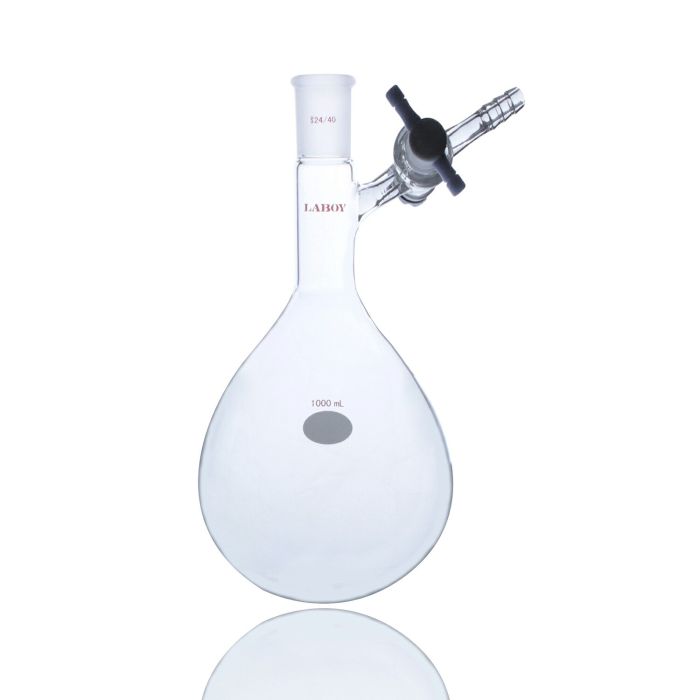Laboy Glass Schlenk Flask Kjeldahl Shape with PTFE Stopcock - Ideal for Air-Sensitive Chemistry
- DESIGN----This Kjeldahl shape schlenk flask consists of a pear-shaped flask facilitates heating and stirring.It has a sidearm fitted with a PTFE stopcock connecting to a vacuum or inert gases source.The top ground glass joint is used to attach the flask to other lab glassware apparatus ,or stopped by a penney head stopper,rubber septum,permitting easy transfer of liquids or solids.
- USE----Schlenk flasks are indispensable laboratory glassware used in air-sensitive chemistry to conduct air-sensitive reaction.Comparing to non-air-sensitive reactions reaction, this schlenk flask features a PTFE stopcock connecting with a schlenk line and controlling the access to inert gas or vacuum. In a reaction setup,the schlenk flask may use with an addition funnel,reflux condenser,magnetic stirring shaft and bars.For filtration,a schlent frit is required.
- HEAVY WALL ---This schlenk flask is heavy-wall designed , made by hand-blowing according to ASTM E438 ,made of high-quality borosilicate glass and annealed at 800 degree Celsius ,can be heated directly in an open flame and can withstand typical laboratory thermal variations in Chemistry processes like heating and cooling,durable and reusable.
This standard schlenk flask is a round bottom, pear-shaped flask with a ground glass joint and a side arm, which has a PTFE stopcock to control the flask's exposure to a vacuum manifold for a schlenk line. The glass out joint at Top is used to add material in the flask and can be stopped by a ground glass stopper. When the flask is connected with a vacuum manifold under a positive pressure of inert gas, the stopper can be replaced with other apparatus, for example a reflux condenser. Laboy glass flasks are heavy wall designed, made by hand-blowing to ensure uniform wall thickness, made of high-quality borosilicate glass and annealed at 800 degree Celsius, can be heated directly in an open flame and can withstand typical laboratory thermal variations in Chemistry processes like heating and cooling.

